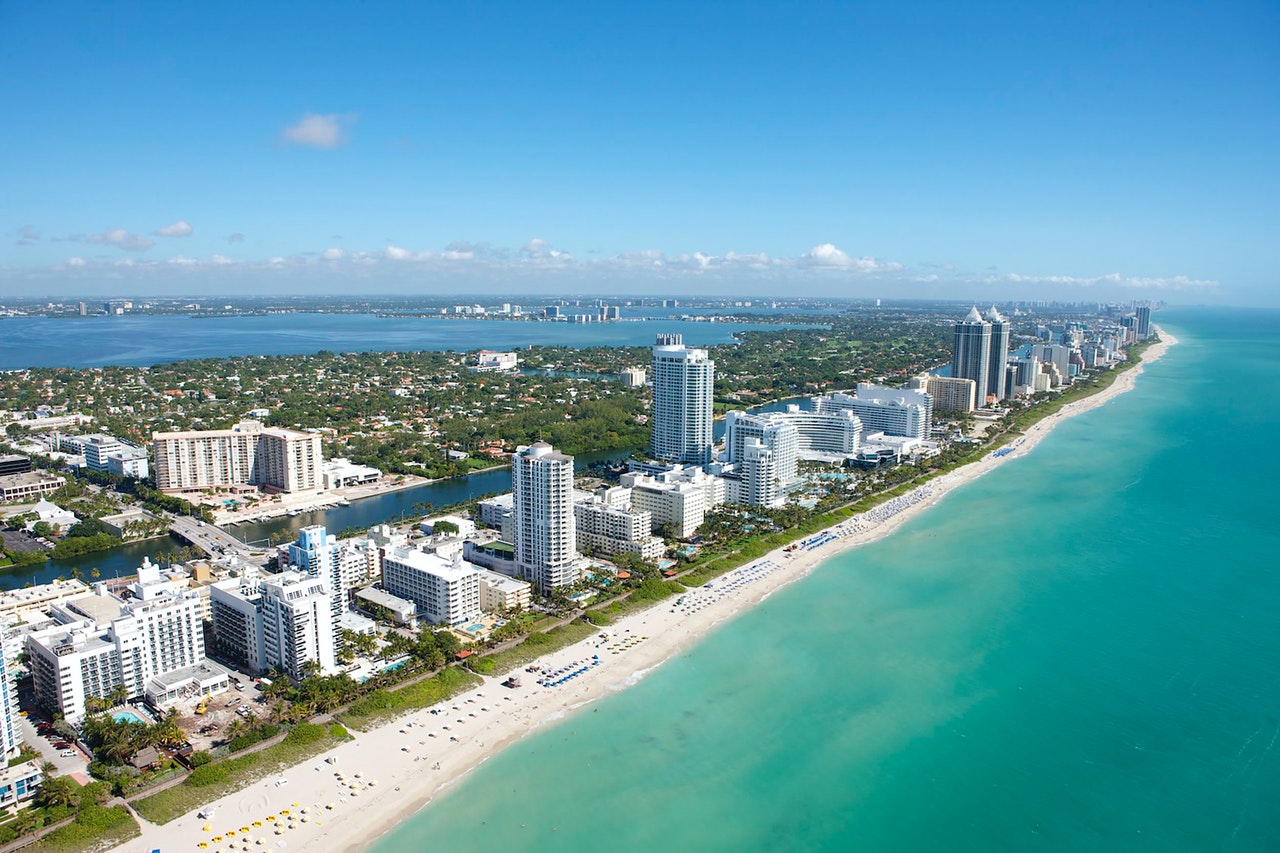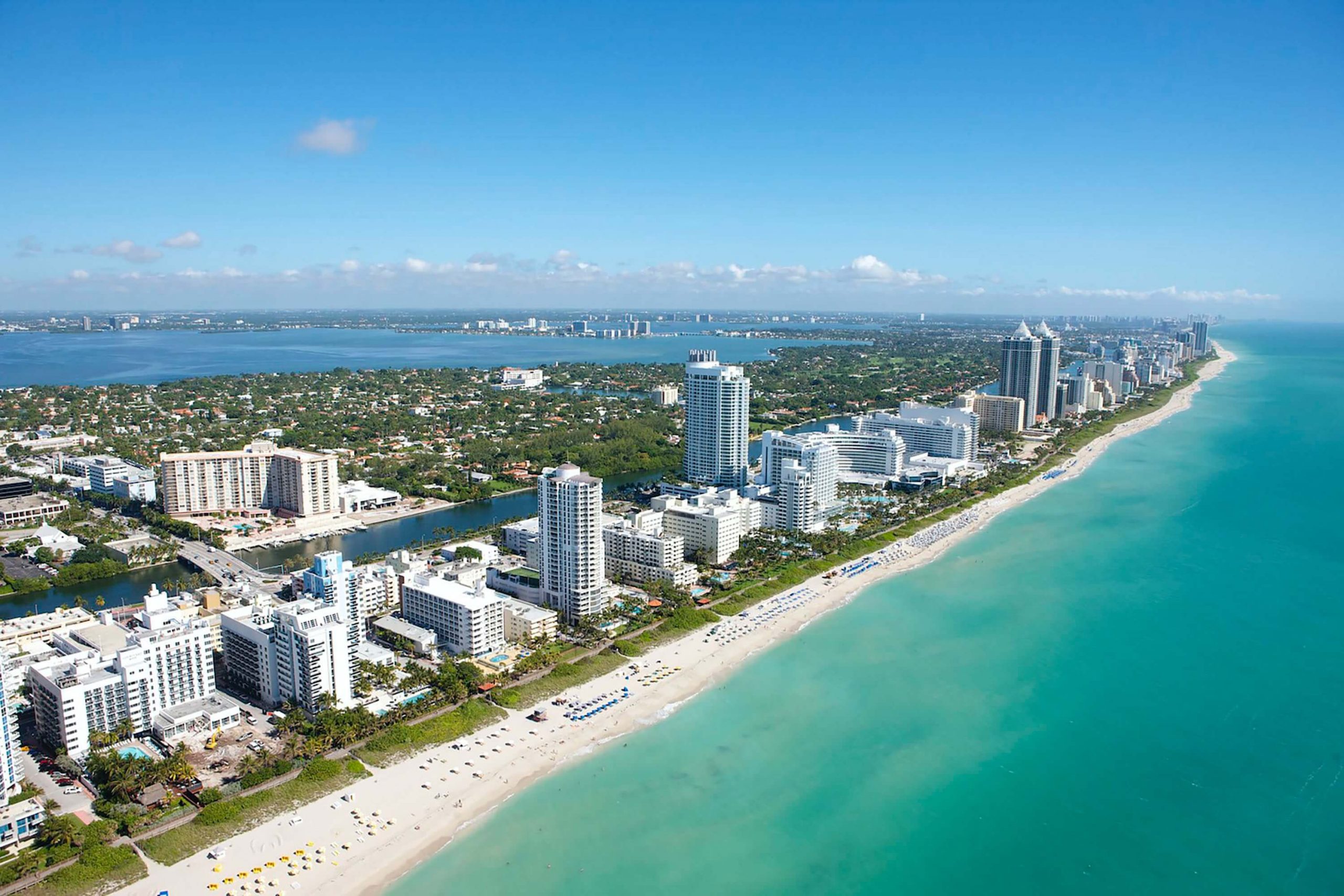1. First steps before moving to Germany
Visa requirements
For most visas, it is a requirement to purchase private healthcare prior to your arrival in Germany that lasts up to 90 days. After getting your residence permit, you can apply for Germany’s health care system.
*Note that you will have to have a basic understanding of the German language if you want to live in Germany.
Work Visa to Germany
You can apply for a visa to work in Germany as a skilled worker with a University degree, as a skilled worker with vocational training, as an aupair, as an IT Specialist, or as a jobseeker. To know more about the specific requirements for each work visa to Germany, visit Schengen Visa Information website.
Study Visa to Germany
Studying in Germany requires the acceptance at a German University and a letter of motivation stating why you want to study in Germany. Your visa application will take around 6–8 weeks to be processed, but may take longer. To know more on the requirements for studying in Germany, visit German Missions in the United States website.
Family Reunion Visa to Germany
If you are planning to get married, are married, or are the parent of an underage child, you must obtain a Family Reunion Visa for your move to Germany. To know more about the requirements for joining family in Germany, check out the Family Reunion Visa. The visa application takes around 12 weeks to be processed.
Finding a job
According to the BMAS, the minimum wage in Germany is 12.00 euros. Germany has a high demand in many sectors including green jobs, nurse practitioners, doctors, engineers, IT specialists, scientists, to name a few.
If you’re looking to work in Germany, it’s important to find a job that matches your skills and interests. You can start by exploring job postings on platforms like Indeed and Arbeitsagentur. If you only speak English, it’s highly advisable to learn and speak German, as proficiency in the local language is often a requirement for many positions.
Indeed (Oct 2023) & BMAS (October 2023)
Getting there
When moving from the U.S. to Germany, air travel is the most efficient and common option. Firstly, ensure that your passport is valid for your intended stay and obtain the necessary visa or residence permit, depending on your purpose for moving. You’ll want to book your flight to a German airport, such as Frankfurt, Munich, or Berlin.
Flight durations can vary depending on routes and layovers, but a nonstop flight typically takes around 8 to 10 hours. Upon your arrival in Germany, be prepared to complete the required immigration and customs procedures before embarking on your new adventure in this culturally rich and diverse European nation.
What should I look for in an International Moving Company?
Shipping your things to Germany takes about 5–9 days by plane and 15 days by boat. You can easily move your things from the US to Germany by plane or boat, but make sure the moving company you decide on is reliable. So when opting for an international moving company, here’s what you should look for:
- Insurance is included (ask what’s included)
- Rates are not extravagant (compare with other companies)
- They have many Google reviews that are over 4 stars.
- Customer service and transparency is their priority.
Car shipping to Germany
Unless you have a significant emotional attachment to your car, most Americans choose to leave their cars behind when moving to Germany due to the elevated shipping and import fees and the long vehicle inspection process. After all, Germany is the car hub of the world, so you won’t have much trouble finding a car within your budget. If you absolutely must ship your car to Germany, here are the steps to follow:
- Get different quotes from the best car shipping companies. A trusted car shipping company will have insurance, good reviews, and will make customer service their priority.
- Choose the port of departure.
- Choose the port destination.
- Prepare the car by cleaning it and emptying the tank to ⅛ full, or you may have to pay a fee upon arrival.
*Ask your chosen car shipping company for additional requirements.
Must dos before your arrival
- Define your required visa or permit to enter and stay in Germany.
- Make sure that your passport is valid for your entire intended stay in Germany.
- Secure a pre-accommodation before your move, you can opt for Airbnb.
- It is strongly recommended to learn German, the official language of Germany!
- Secure a Job Offer for smooth Work Permit Process.
- Plan your move in advance, check international movers.
2. Upon your arrival in Germany
Must dos right upon your arrival
- Get to know your neighborhood, local stores, pharmacies, and emergency phone numbers.
- Notify your employer and get guidance on next steps after your arrival.
- Consider opening a local bank account for financial convenience.
- Check requirements for your license to drive in Germany.
- Ensure you have some cash on hand, as the currency in Germany has been the euro since 2002
- Register with the authorities and obtain your residence permit within three months of arrival.
- Obtain your Social Security ID.
Healthcare
Healthcare in Germany is not free. If you earn less than 60,000 euros per year in Germany, it is mandatory to enroll in the government’s health care scheme, for which you will pay monthly fees of approximately 15% of your gross income. If you earn over 60,000 euros per year, it is compulsory to purchase private health insurance.
Everyone in Germany must have some form of health insurance, whether it is public or private. Once your long-stay German visa has been approved, you can access Germany’s healthcare system after receiving your German social insurance number and registering with the German authorities upon your arrival.
Health Insurance in Germany
It is a requirement to have health insurance upon your arrival in Germany. Once you have become a lawful resident in Germany and are eligible for the healthcare system, you must pay a monthly premium for health insurance. Enrollment in public health insurance is mandatory for those earning less than 60,000 euros a year.
If you earn over 60,000 euros a year, you may choose to opt for private health insurance, but having health insurance is still compulsory. Health insurance in Germany typically costs around 15% of your monthly salary.
Setting up your cell phone
Cell phones in Germany are known as “Handys”. Ensure that your phone is unlocked before your arrival in Germany so that you can easily purchase a German SIM card from any cell phone provider, supermarket, corner shop, or filling station. You can opt for either a prepaid plan or a monthly subscription. The most popular German cell phone providers are T-Mobile/Telekom, Vodafone, and O2.
Getting a driver’s license
You can use your American driver’s license for up to six months after establishing residency in Germany. However, you must also obtain a translation of your American driver’s license into German. If you operate a motor vehicle with a foreign driver’s license that is not recognized or has expired here, it will be considered driving without a valid license and subject to appropriate penalties.
Car insurance in Germany
Car insurance is mandatory in Germany. Third party liability coverage is the minimum insurance required in Germany. While there are over 90 car insurance companies to choose from, the most popular one’s in Germany are AXA, AvD, BavariaDirekt, HDI, and R+V.
Setting up a bank account
To register for important services like internet and insurance, you will need a bank account in Germany. If you are looking for a bank that has an English language services, you should opt for bigger banks like Sparkassen. If you don’t mind that your banking language is in German, you can opt for popular banks like Deutsche Bank, Commerzbank, KFW Bankgruppe or DZ Bank.
Germany Currency
Since 2002, the currency in Germany has been the euro. Bills are issued in €500, €200, €100, €50, €20, €10, €5. Coins are issued in €2, €1, 50c, 20c, 10c, 5c, 2c, and 1c. Paying with credit cards in Germany is not as common as in the US, so make sure you always have some cash on you. You can get cash from the Geldautomat, which is the German term for an ATM.
Register with the authorities
It is mandatory to register with the Residents’ Registration Office within two weeks of your arrival in Germany. This is the initial administrative step, during which you will need to provide them with your new address.
Get your residence permit
Within 3 months of arriving in Germany, you must take an appointment to obtain your residence permit. Make an appointment with the State Office for Immigration as early as you can.
To book an appointment with the State Office for Immigration, visit the Immigration & Registration Offices.
Get your Social Security ID
To open a bank account, pay your taxes, be eligible for German health insurance, you must get a Social Security ID. Your German employer will enroll you in the social security system automatically. You will then start paying a deductible that will make you eligible for German healthcare. Click here for more information on the German Social Security ID.
Language in Germany
The primary language in Germany is German, and English is the most commonly spoken foreign language. While many Germans are proficient in English, it’s essential to learn German when moving to the country.
Germany has strict language requirements for immigrants to facilitate their integration. You don’t need to be fluent, but a basic understanding is necessary.
3. Best places to live in Germany

When moving to Germany, choosing the right place to live depends on your priorities and preferences. Here are some of the best cities in Germany, each with its unique characteristics:
|
Cities |
Characteristics |
|
Berlin |
Capital of Germany, known for its vibrant culture and rich history. |
|
Munich |
Ideal for career opportunities, boasting a strong job market and a high quality of life. |
|
Frankfurt |
A top choice for raising a family, offering excellent schools and family-friendly amenities. |
|
Hamburg |
A city rich in culture and history, with a diverse range of activities and attractions. |
|
Stuttgart |
Perfect for nature lovers, surrounded by scenic landscapes and outdoor adventures. |
Setting up home services
Electricity or gas and water in Germany are usually included if you rent. Energy providers will be different based on the areas you live in. The most known energy providers are Vattenfall, E.On, Lekker, and Greenpeace Energy. Signing up with your energy supplier is either done by phone or online.
Your water supplier will be different based on the area you live in. To know who your local water supplier is, contact your municipality.
The Internet in Germany is expensive due to 3 large companies operating most of the system. In terms of speed, it is considerably average. You should expect to pay $46 USD a month at 60 Mbps for the internet in Germany, along with an additional installation and equipment fee. The top internet providers in Germany are 1&1 Internet, and Vodafone.
Should you rent or buy?
Most people in Germany are renters rather than owners. There are strict rules in German apartment buildings, but you will be happy to know that rent in Germany is not that expensive compare to other European countries.
If you rent an apartment in Germany that is labelled “Cold Rent” it means the apartment does not include utilities. If you rent an apartment in Germany called “Warm Rent” it includes utilities like water, heating, and more depending on the apartment.
To find an apartment for rent in Germany you can visit websites like ImmobilienScout24, Ebay-Kleinanzeigen, Immowelt, and Meinstadt.de.
Due to a lack of space and expensive renovation costs, many people find it impractical to purchase properties in Germany. Those who do purchase properties are usually far away from the city as they are cheaper and more available. If you do choose to purchase a property in Germany, ImmobilienScout24, Immowelt, Immonet, and WG-Gesucht are all websites that can help you with your search.
Home Insurance in Germany
While Germany does have a very strict health insurance policy, it is not mandatory to purchase home insurance. Home insurance is a great way to protect your home and your belongings in case they get damaged. The most popular home insurance companies in Germany are Lemonade, ARAG,AXA, and BavariaDirekt.
4. Cost of living in Germany
|
Category |
Monthly cost |
|
1 bed apt rent outside city center |
$661.03 |
|
Groceries Numbeo’s grocery list ($44.23 multiplied by 4) |
$176.92 |
|
Utilities Electricity, heating, cooling, water, garbage |
$289.36 |
|
Internet with 60 Mbps |
$45.91 |
|
Transit pass |
$63.62 |
|
Entertainment Meal, taxi, movie |
$81.64 |
|
Gym membership |
$35.99 |
|
Total |
$1,354.47 |
Tips for Buying Groceries in Germany
Grocery costs are low in Germany, due to the competition between big grocery chains. The majority of grocery stores are closed on Sundays and are not open as late as in the US. Don’t forget to bring your own bags, as plastic bags are banned in Germany. Some top grocery chains include: Edeka, Rewe, Lidl, Aldi, Carrefour, and Kaufland.
What to Expect from your New Life in Germany
While you will have to learn German to live in Germany, you can expect a great quality of life. Don’t forget to be on time, carry cash with you, and don’t wait until Sunday to buy stuff as most stores are closed. Avoid making noise between 1 and 3 in the afternoon, as most people take naps. Don’t forget to get a taste of that delicious beer and have fun eating out!
5. The weather in Germany
Germany has weather patterns somewhat similar to the United States, but there are variations to consider. For example, during summer in Berlin, the average temperature is around 23 °C. It’s advisable to pack a raincoat, as Germany experiences heavy rainfall in the months of June and August.
Winters in Frankfurt can be colder, with evening temperatures dropping to around -1 °C. However, for someone accustomed to American winters, it’s generally manageable.
6. What to do as a local in Germany
Residents of Germany take pleasure in spending their weekends either watching or playing soccer, golf, ice hockey and basketball. The most popular team in Germany is FC Bayern Munich AG, so be sure to catch a game to embrace the German culture.
Germany is also known for their wild nightlife, including house parties. Don’t forget to take time for yourself over the weekend and relax with a beer or cold drink. One of the most popular party spots is located in Hamburg, Germany.
If you truly would like to become a local, be sure to explore German cuisine at your local market and try to make Germany’s most popular dish, schnitzel!
7. Fun facts about Germany
- Often celebrated for its remarkable architecture and high-quality manufacturing.
- Global leader in recycling, thanks to its advanced recycling programs, so make sure to recycle responsibly!
- Home to a staggering number of over 20,000 castles, including the famous Neuschwanstein Castle.
Conclusion
Moving from the U.S. to Germany offers a chance to experience different cultures, find good jobs, and high quality of life. It might be a bit hard at first because of the new language and rules, but the benefits are worth it. Germany has a strong economy, excellent schools and healthcare, which make it a great place for people from other countries who want a change.
As you get ready for this exciting journey, research international moving companies thoroughly. Want to know more about moving from the U.S. to Europe? Check out our article on the Things to Know before moving from the US to Europe.





